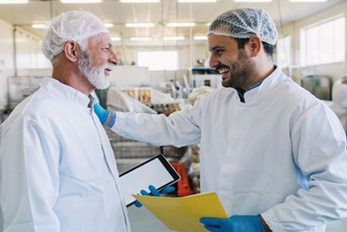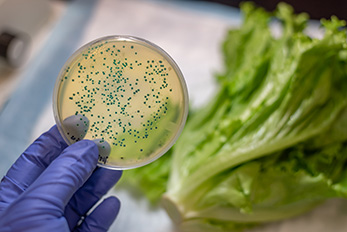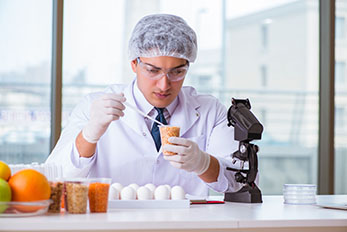Main Content

Course Status Notice – Not Scheduled
We do not have an offering of this course scheduled at this time. Please join our email list to be notified when the next offering is scheduled!
Jump to: Overview | Instructor | Reviews | CE Credits | Contact Us | Related Courses | Join Email List
Course Details
Course Name: Better Process Control School
Course Code: LF0703WA23
Date of Most Recent Offering: January 23-27, 2023
Course Overview
Comply with FDA/USDA Regulations while Advancing Your Food Processing Knowledge!
Do you work in a plant that packs and thermally processes low-acid foods and acidified foods in hermetically sealed containers? Could your canned food products be vulnerable to contamination? Better Process Control School provides the training you need to comply with federal regulations, reduce your susceptibility, and minimize your liability.
This virtual online course provides essential information on how to effectively control the risks associated with manufacturing commercially-sterile foods, and how to comply with the U.S. laws that exist to prevent public health problems resulting from contamination in canned food products.
Video Preview with Instructor Dr. Don Schaffner
FDA and USDA Regulations Addressed by Better Process Control School
This virtual online course meets the Food and Drug Administration’s (FDA) regulations in 21 CFR 108, 113, and 114, which require that each processor of low-acid and acidified low-acid canned foods (including pet foods) operate with a certified supervisor on hand at all times during processing. It also meets similar regulations and training requirements set forth in the U.S. Department of Agriculture’s (USDA) Food Safety and Inspection Service (FSIS) regulations 9 CFR 318.300 and 381.300 for thermally processed meat and poultry products.
Increase Your Knowledge of Food Processing Principles
In addition to satisfying FDA and USDA requirements, Better Process Control School course attendees learn the practical applications of the principles underlying these regulations. You will increase your understanding of key concepts such as thermal processing system operations, microbiological food safety, equipment operations, and acidification and container closure evaluation programs for low acid and acidified canned foods.
BPCS Course Format
The Rutgers University Better Process Control School is approved by the FDA and follows the prescribed course of instruction for certification. After each section of the course is taught, students immediately take the related exam while the information is still fresh in their minds. Scores are provided before the next exam begins. To successfully complete the course, participants must attend all five half day sessions and pass the exams with a score of 70% or higher. Participants who meet these requirements become BPCS certified, and they also receive a certificate of training from Rutgers University.
Featured Topics
This food safety training course will cover the following topics over five days of virtual online instruction:
- FDA Remarks
- Microbiology of Thermally Processed Foods
- Acidified Foods
- Principles of Thermal Processing
- Food Plant Sanitation
- Food Container Handling
- Records and Recordkeeping
- Equipment, Instrumentation, and Operation for Thermal Processing
- Retorts (including Still Steam Retorts, Still Steam Retorts Processing with Overpressure, Hydrostatic Retorts, Continuous Rotary Retorts, and Batch Agitating Retorts)
- Aseptic Processing and Packaging
- Container Closures: Double Steamed Metal, Plastic, Glass, Flexible, and Semirigid
Who Should Attend?
This virtual online course has been specifically designed for supervisors, quality control technicians, line workers involved in retort operations, aseptic processing and packaging system operators, and container closure inspectors at facilities that produce or handle low-acid and acidified canned foods. It is an is an excellent educational opportunity for mid-level managers and employees of food processing plants that utilize thermal processing. Food safety and quality assurance personnel, individuals who work with canned and flexible packaged food products, academia, and government auditors and inspectors can also benefit from attending this course.
Past attendees have included:
- Food Safety Officers
- Food Safety Specialists
- Food Safety and Regulatory Affairs Manager
- Food Processing Plant Managers
- Food Safety Consultants
- Food Scientists and Food Technologists
- Quality Assurance/Quality Control Professionals
- Public Health Professionals
- Research & Development / Product Development Professionals
- Staff Engineers
Meet Your Instructors
Don Schaffner, PhD, Rutgers University

Dr. Donald W. Schaffner is Extension Specialist in Food Science and Distinguished Professor at Rutgers University. He serves as Chair of the Department of Food Science. His research interests include quantitative microbial risk assessment, predictive food microbiology, handwashing, and cross-contamination. Dr. Schaffner has authored more than 190 peer-reviewed publications, and numerous book chapters and abstracts. He has been the recipient of more than $9 million in grants and contracts, a majority in the form of competitive national grants. Dr. Schaffner has educated thousands of Food Industry professionals through numerous short courses and workshops in the United States and dozens of countries around the world. Learn more about Dr. Schaffner.
Karl Matthews, PhD, Rutgers University

Karl R. Matthews, Ph.D., is a Professor of Food Microbiology in the Department of Food Science at Rutgers, The State University of New Jersey. Matthews’ research addresses farm-to-fork food safety issues. His research covers elucidating at the molecular level the interaction of human enteric pathogens with plants to developing novel antimicrobials to improve the microbial safety of fresh fruits and vegetables from post-harvest processing to retail practices. He serves as Principle and Co-principle investigator on federal and foundation grants and commercial funded projects. He is actively engaged in teaching at the undergraduate and graduate level and served as the Food Science undergraduate program director.
Matthews has given presentations and lectures throughout the world. He has taught courses on Food Microbiology, Food Safety, Food Law, and Food Sustainability in China and India. He is involved in projects in the Philippines and Thailand to promote development of Food Science programs and microbial food safety. He has received awards recognizing both his teaching and research, most recently receiving a Fulbright U.S. Scholar Program award in Food Science/Food Microbial Safety for the 2023-2024 academic year by the U.S. Department of State and the Fulbright Foreign Scholarship Board. He serves on both NIH and USDA panels and on the editorial boards for several journals. He is Associate Editor of Frontiers in Sustainable Food and Agriculture and was Editor-in-Chief of the Journal of Food Safety. Matthews is senior-author of Food Microbiology – An Introduction (a leading textbook on Food Microbiology), editor of Microbiology of Fresh Produce, and senior-editor of The Produce Contamination Problem: Causes and Solutions. He has collectively published more than 275 abstracts, peer reviewed papers, and book chapters.
Rieks Bruins
Rieks has been the project manager for various projects in the areas of Quality Data Management, Manufacturability of Combat Rations, Non Destructive Quality Assurance Testing, and Process Optimization. His expertise in retort processing optimization, in particular pressure profiles for semi rigid containers, is well known. He holds a BS and MS in Mechanical Engineering from the Technical Institute of Twente, Netherlands. Prior to joining CAFT in 1989, he worked for eleven years at General Foods Corp. focusing on the development and commercialization of processes for new and improved products.
Student Reviews
Most useful aspect of the course: “I appreciated learning about what classifies an ‘aseptic’ process and how to use the regulatory language to define whether your product is an ‘acidified’ product or not.”
– Past Participant
“As an employee at Campbell Soup and working for process safety team, this course touched on absolutely everything and was beneficial.”
– Past Participant
“Very thorough and enjoyable class. Instructors are very knowledgeable on the subject matter.”
– Past Participant
Continuing Education Credits
The most recent offering of Better Process Control School was approved for 2.1 Rutgers CEUs (21 contact hours), as well as the following credits from professional organizations. We will reapply for similar credits the next time the course runs, but we cannot guarantee credit approval for future offerings.
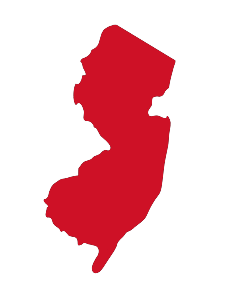 New Jersey
New Jersey
NJ Health Officers and Registered Environmental Health Specialists (HO/REHS): Rutgers University, NJAES, Office of Continuing Professional Education has been approved by the New Jersey Department of Health as a provider of NJ Public Health Continuing Education Contact Hours (CEs). Participants who complete this education program will be awarded 23.5 NJ Public Health Continuing Education Contact Hours (CEs).
 National
National
Certified Food Scientists: This program qualifies for Certified Food Scientist (CFS) recertification contact hours (CH). CFS Certificants may claim a maximum of 22.5 CH for their participation in this program. For more information, please visit www.ift.org/certification or email ifscc@ift.org.
Attention U.S. Veterans

This course is approved by the New Jersey State Approving Agency for Veterans Training for educational benefits through the GI Bill®. Learn more.
GI Bill® is a registered trademark of the U.S. Department of Veterans Affairs (VA). More information about education benefits offered by VA is available at the official U.S. government website at http://www.benefits.va.gov/gibill.
Program Questions? We’re Here to Help!
If you have any questions about Better Process Control School, please don’t hesitate to reach out to us.
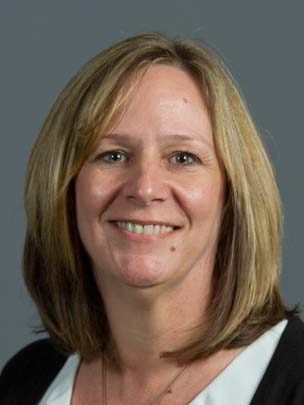
Program Coordinator: Suzanne Hills
848-932-7234
suzanne.hills@rutgers.edu
